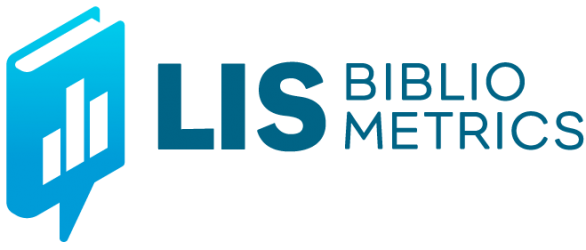Lizzie Gadd speculates as to why Elsevier endorsed the Leiden Manifesto rather than signing DORA, and what the implications might be.
If an organisation wants to make a public commitment to responsible research evaluation they have three main options: i) sign DORA, ii) endorse the Leiden Manifesto (LM), or iii) go bespoke – usually with a statement based on DORA, the LM, or the Metric Tide principles.
The LIS-Bibliometrics annual responsible metrics survey shows that research-performing organisations adopt a wide range of responses to this including sometimes signing DORA and adopting the LM. But when it comes to publishers and metric vendors, they tend to go for DORA. Signing DORA is a proactive, public statement and there is an open, independent record of your commitment. DORA also has an active Chair in Professor Stephen Curry, and a small staff in the form of a program director and community manager, all of whom will publicly endorse your signing which leads to good PR for the organisation.
A public endorsement of the LM leads to no such fanfare. Indeed, the LM feels rather abandoned by comparison. Despite a website and blog, there has been little active promotion of the Manifesto, nor any public recognition for anyone seeking to endorse it. Indeed one can’t help wondering how differently the LM would operate if it had been born in a UK institution subject to the impact-driven strictures of the REF?
But despite this, Elsevier recently announced that they had chosen the Leiden Manifesto over DORA. Which leads us to ask i) why? And ii) what will this mean for their publishing and analytics business?
Why not DORA?
Obviously I wasn’t party to the conversations that led to this decision and can only speculate. But for what it’s worth, my speculation goes a bit like this:
So, unlike the LM which provides ten principles to which all adopters should adhere, DORA makes different demands of different stakeholders. So research institutions get off pretty lightly with just two requirements: i) don’t use journals as proxies for the quality of papers, and ii) be transparent about your reward criteria. Publishers and metrics suppliers, however, are subject to longer lists (see box) and of course, Elsevier are both. And it is within these lists of requirements that I think we find our answers.

- Positioning CiteScore as the JIF’s responsible twin.
Firstly, DORA demands that publishers ‘greatly reduce emphasis on JIF as a promotional tool’. However, Elsevier have invested heavily in CiteScore (their alternative to the JIF) and are not likely to want to reduce emphasis on it. Indeed the press release announcing their endorsement of the LM provided as an example, the way they’d recently tweaked the calculation of CiteScore to ensure it met some of the LM principles, positioning it as a ‘responsible metric’ if you will. This is something they’d struggle to get away with under DORA.
- Open citations? Over my dead body
One of the less well-discussed requirements of DORA for publishers is to “remove all reuse limitations on reference lists in research articles and make them available under the Creative Commons Public Domain Dedication.” In other words, DORA expects publishers to engage with open citations. This is something Elsevier have infamously failed to do.
- Open data? You’ll have to catch me first
And finally, DORA expects metric suppliers to not only “be open and transparent by providing data and methods used to calculate all metrics” (which they partly do for subscribers) but to “Provide the data under a licence that allows unrestricted reuse, and provide computational access to data, where possible” (which they don’t).
So whereas DORA is a relatively easy sign for HEIs (only two requirements) for publishers, it’s more tricky than might first appear (five requirements) and for an organisation like Elsevier which also supplies metrics, they have to contend with a further four requirements, which would essentially eat away at their profits. And we all know that they’re only just scraping by, bless them.
The impact of endorsing the Leiden Manifesto
But isn’t it good enough that they’ve endorsed the Leiden Manifesto? After all, it’s a comprehensive set of ten principles for the responsible use of bibliometrics? Well, being a seasoned grumbler about some of the less savoury aspects of Elsevier’s SciVal, I decided to take to the discussion lists to see whether they saw this move as a the beginning or the end of their responsible metrics journey. Was this the start of a huge housekeeping exercise which would sweep away the h-index from researcher profiles? Disinfect the unstable Field-Weighted Citation Index from author rankings? And provide health-warnings around some of the other over-promising and under-delivering indicators?
Apparently not.
“There is nothing inherently wrong with the h-index” said Holly Falk-Krzesinski, Elsevier’s Vice-President for Research Intelligence, pointing to three of the Leiden Manifesto’s principles where she felt it passed muster. (Despite on the same day, Elsevier’s Andrew Plume questioning its validity). And as part of a basket of metrics, she considers the FWCI is a perfectly usable indicator for researchers. (Something Elsevier’s own SciVal Advisors disagree with). And she believes the h-index is “not displayed in any special or prominent way” on Pure Researcher Profiles. Erm…

And after several rounds of this, frankly, I gave up. And spent a weekend comfort-eating Kettle chips. Because I care deeply about this. And, honestly, it felt like to Elsevier it was just another game to be played.
Responsible is as responsible does
Back in 2018 I made the point that if we weren’t careful, responsible metrics statements could, in an ironic turn, easily become ‘bad metrics’, falsely signifying a responsible approach to metrics that wasn’t there in practice. And the reason these statements are so vulnerable to this is that neither DORA nor the LM are formally policed. Anyone can claim to be a follower and the worst that can happen is that someone calls out your hypocrisy on Twitter. Which does happen. And is sometimes even effective.
It is for this reason that the Wellcome Trust have stated that adopting a set of responsible metrics principles is not enough. If you want to receive their research funding from 2021, you need to demonstrate that you are acting on your principles. Which is fair. After all, if you want Athen Swan accreditation, or Race Equality Chartership or a Stonewall Charter, you have to provide evidence and apply for it. It’s not self-service. You can’t just pronounce yourself a winner. And I can’t help wondering: yes, Elsevier has endorsed the Leiden Manifesto, but would the Leiden Manifesto (given the chance) endorse Elsevier?
Now I know that CWTS and DORA would run a mile from such a proposition, but that doesn’t mean it’s not needed. Responsible-metrics-washing is rife. And whilst I‘d rather folks washed with responsible metrics than anything else – and I’m sure a few good things will come out of it – it does rather feel like yet another instance of a commercial organisation paying lip-service to a community agenda for their own ends (see also: open access and copyright retention).
Right on cue, Helen Lewis in The Atlantic recently described the ”self-preservation instinct [that] operates when private companies struggle to acclimatize to life in a world where many consumers vocally support social-justice causes”. “Progressive values are now a powerful branding tool” she writes, and “Brands will gravitate toward low-cost, high-noise signals as a substitute for genuine reform, to ensure their survival.” Correct me if I’m wrong but that sounds pretty apposite?
Of course, it’s early days for Elsevier’s Leiden Manifesto journey and Andrew Plume did seek to reassure me in a video call that they were still working through all the implications. So let’s hope I’m worrying about nothing and we’ll be waving goodbye to the h-index in Elsevier products any day soon. But if nothing does transpire, I know as the developer of a responsible metrics model myself, that I’d feel pretty sick about it being used as empty virtue-signalling. And it does occur to me that funders’ seeking to hold institutions to account for their responsible research evaluation practices might do well to direct their attention to the publishers they fund.
Otherwise I fear it really will be case of, well, Elsevier have endorsed the Leiden Manifesto: so what?

Elizabeth Gadd is the Research Policy Manager (Publications) at Loughborough University. She is the chair of the Lis-Bibliometrics Forum and co-Champions the ARMA Research Evaluation Special Interest Group. She also chairs the INORMS International Research Evaluation Working Group.
 Unless it states other wise, the content of the Bibliomagician is licensed under a Creative Commons Attribution 4.0 International License.
Unless it states other wise, the content of the Bibliomagician is licensed under a Creative Commons Attribution 4.0 International License.

3 Replies to “Elsevier have endorsed the Leiden Manifesto: so what?”